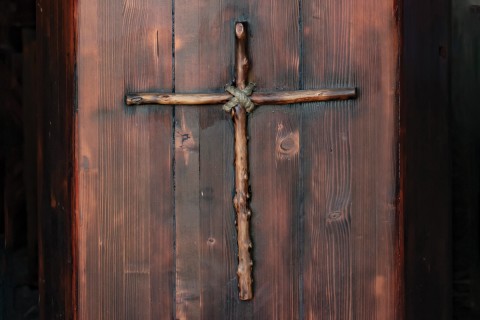Preaching in the valley of actual death
My task at funerals is to share the life, death, and resurrection of Jesus.

John Wesley had a portable pulpit. The immediate need was practical: he was short, and his pulpit elevated him so that he could be seen and heard. Perhaps more importantly, the portable pulpit turned every open field into a preacher’s corner. Wesley, who considered the world his parish, preached anywhere he could. On one occasion, he was forbidden to preach in his father’s old church in Epworth, England, so he preached just outside instead—while standing on his father’s tombstone.
I have recently been thinking about cemeteries as venues for our own field preaching and funerals as metaphorical platforms for authentic evangelism. I believe that gospel proclamation is a form of prophetic pastoral care for those who may be grieving. Where better than a funeral to announce the Good News that God has acted in Jesus? That Jesus has embraced our suffering as his? That by faith we may lay hold of his resurrected life as ours? That despite appearances, divine love has not and will not let us go? Yet it is often quite hard—harder than we may imagine it should be—to say such things at a funeral, especially when the funeral is a difficult one.
Years ago, my bishop gave me emergency pastoral responsibility for a nearby congregation whose pastor had been suspended. The day after the pastor left, and unrelatedly, Eve, the twentysomething daughter of a couple in that church, died by suicide. I pleaded with the bishop to reinstate the pastor, at least for the funeral duties that I felt inadequate to perform. She refused.




